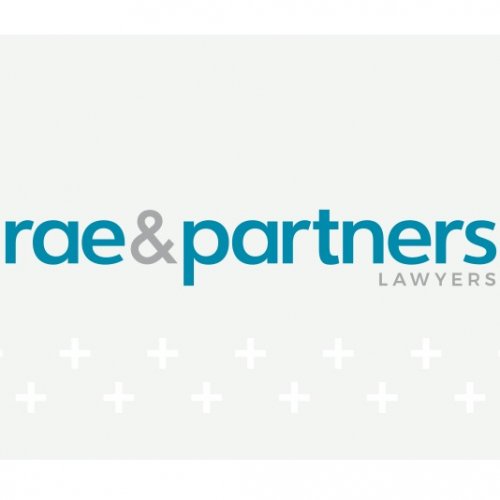Best Aviation Lawyers in Devonport
Share your needs with us, get contacted by law firms.
Free. Takes 2 min.
List of the best lawyers in Devonport, Australia
About Aviation Law in Devonport, Australia
Aviation law in Devonport, Australia, is an essential aspect of the region's transportation infrastructure, given its strategic location and growing demand for air travel and logistics. Devonport Airport plays a crucial role in connecting the local community with other parts of Australia, and as such, the legal landscape around aviation is both dynamic and complex. Aviation law encompasses various areas including regulatory compliance, safety standards, commercial transactions, and dispute resolution, all governed by both national and local frameworks.
Why You May Need a Lawyer
There are numerous situations where one might require legal assistance in the field of aviation. Whether you're an airline operator, passenger, aircraft owner, or involved in the aviation supply chain, legal expertise may be required in cases such as aircraft leasing disputes, personal injury claims from air travel incidents, compliance with aviation safety and environmental regulations, and business contract negotiations. A lawyer specialized in aviation can help navigate these complex issues with tailored legal strategies.
Local Laws Overview
In Devonport, aviation activities are primarily governed by the national legal framework, including the Civil Aviation Act 1988 and regulations issued by the Civil Aviation Safety Authority (CASA). Local laws also influence aspects such as noise restrictions, zoning for airports, and environmental considerations. Understanding these laws is crucial for ensuring compliance and successful operation of aviation-related activities in the region.
Frequently Asked Questions
What are the key regulatory bodies for aviation in Devonport?
The primary regulatory bodies include the Civil Aviation Safety Authority (CASA) and the Department of Infrastructure, Transport, Regional Development, and Communications.
How can I register an aircraft in Devonport?
Aircraft registration is managed by CASA. You'll need to complete the necessary forms and adhere to all regulatory requirements set forth by the authority.
What are the noise restrictions around Devonport Airport?
Noises restrictions are in place to minimize the impact of aviation activities on residential areas. Specific guidelines and curfews may apply based on local council regulations.
Can I seek compensation for flight delays in Devonport?
Compensation for flight delays is subject to airline policy and Australian consumer law. Reviewing the terms of carriage with the airline can provide insights into your rights.
What legal recourse is available for aircraft leasing disputes?
Aircraft leasing disputes can be resolved through negotiation, mediation, or legal action depending on the terms of the lease agreement and applicable regulations.
How do safety regulations affect small aviation businesses?
Safety regulations enforced by CASA impact all aviation businesses, requiring comprehensive safety management systems and compliance with operational standards.
What steps are required to start an aviation business in Devonport?
Starting an aviation business involves obtaining appropriate licenses, complying with safety regulations, and securing necessary permits from both federal and local authorities.
Is there legal support available for environmental compliance in aviation?
Environmental compliance is crucial, and legal support is available to help navigate obligations under both federal law and local environmental regulations.
What are the consequences of aviation regulation violations?
Violations can result in penalties, suspensions, and potentially severe legal and financial repercussions, depending on the nature and severity of the breach.
Are there specific laws regarding drones in Devonport?
Yes, operating drones is subject to specific CASA regulations, including restrictions on where you can fly, height limits, and registration requirements for certain types of drones.
Additional Resources
For more information on aviation laws and regulations in Devonport, the following resources can be invaluable:
- The Civil Aviation Safety Authority (CASA) website provides comprehensive guidelines and updates on aviation safety regulations.
- The Australian Transport Safety Bureau (ATSB) offers insights and reports on aviation safety investigations.
- Local council offices can provide details on specific zoning and noise regulations impacting aviation activities.
Next Steps
If you require legal assistance in aviation, it is advisable to consult with a legal professional who specializes in this field. You can begin by:
- Researching and identifying reputable aviation lawyers in Devonport.
- Contacting legal firms for consultations to discuss your specific needs and circumstances.
- Gathering any relevant documents, contracts, or communications that may be necessary for your legal case.
Taking timely action can ensure that your rights are protected and that any aviation-related legal issues are effectively addressed.
Lawzana helps you find the best lawyers and law firms in Devonport through a curated and pre-screened list of qualified legal professionals. Our platform offers rankings and detailed profiles of attorneys and law firms, allowing you to compare based on practice areas, including Aviation, experience, and client feedback.
Each profile includes a description of the firm's areas of practice, client reviews, team members and partners, year of establishment, spoken languages, office locations, contact information, social media presence, and any published articles or resources. Most firms on our platform speak English and are experienced in both local and international legal matters.
Get a quote from top-rated law firms in Devonport, Australia — quickly, securely, and without unnecessary hassle.
Disclaimer:
The information provided on this page is for general informational purposes only and does not constitute legal advice. While we strive to ensure the accuracy and relevance of the content, legal information may change over time, and interpretations of the law can vary. You should always consult with a qualified legal professional for advice specific to your situation.
We disclaim all liability for actions taken or not taken based on the content of this page. If you believe any information is incorrect or outdated, please contact us, and we will review and update it where appropriate.








